Countdown to 20th Party Congress: Xi Jinping in command as China's party leadership takes shape
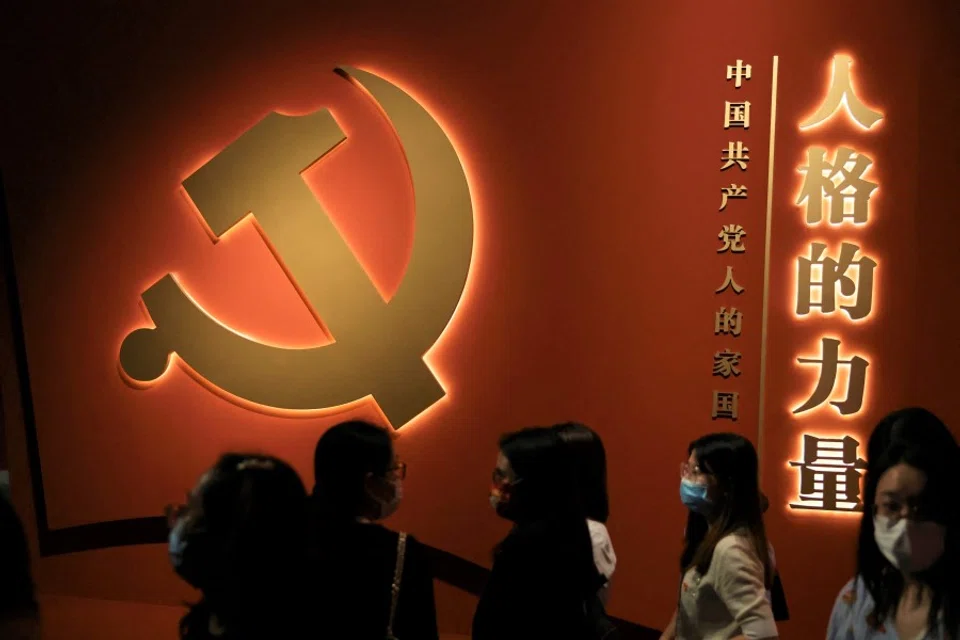
On 30 June, the 13th Beijing Municipal Congress of the Communist Party of China (CPC) closed with the investiture of the new municipal standing committee. The event wrapped up the reshuffle of all provincial party committees, which had begun in October 2021, with 388 members among the new provincial-level leadership.
Completed before the 20th Party Congress, the reshuffle is a prelude to how party committees select local representatives to attend the congress. The new "first-in-command" provincial-level party leaders will become Central Committee members at the congress, and most provincial-level deputy party secretaries and sub-provincial-level city party secretaries will become alternate members.
More new faces
Compared with the 19th Party Congress five years ago, there are more changes in the provincial-level committee members. In late June 2017, when the investitures of provincial-level committees concluded, 85 of the 375 appointed provincial-level leaders, or 22.7%, were new faces; this time around, there are far more, at 124 new faces or 32%.
Among the new provincial-level standing committee members, only nine were born in the 1950s, or less than 2.5%; 310 were born in the 1960s; and 69 were born in the 1970s. This signals a new framework of having the post-60s group as the mainstay of local leadership, with the post-70s group as the up-and-coming team.
Among the current provincial-level standing committee members, the oldest is 67-year-old Beijing party secretary Cai Qi, while the youngest is 46-year-old Ren Wei, vice-chairman of the People's Government of the Tibet Autonomous Region.
... many provincial first-in-commands come from professional sectors such as the military, medicine and aviation.
More diverse backgrounds and better educated
Each of the 31 provinces and cities has at least one provincial-level standing committee member from the post-70s group. In terms of the geographical distribution of post-70s members, Beijing and Shanghai each have five, the most among the regions; Tibet follows closely with four; Liaoning, Jiangsu, Zhejiang, Hainan, Sichuan and Guangxi each have three.
At the same time, the local officials come from more diverse backgrounds and are generally better educated - over a third of the 124 newly promoted provincial-level standing committee members have doctorate degrees.
And many provincial first-in-commands come from professional sectors such as the military, medicine and aviation. Liaoning party secretary Zhang Guoqing was former president of military equipment manufacturer Norinco, while party secretaries of Fujian and Hainan - Yin Li and Shen Xiaoming respectively - are medical PhD holders.
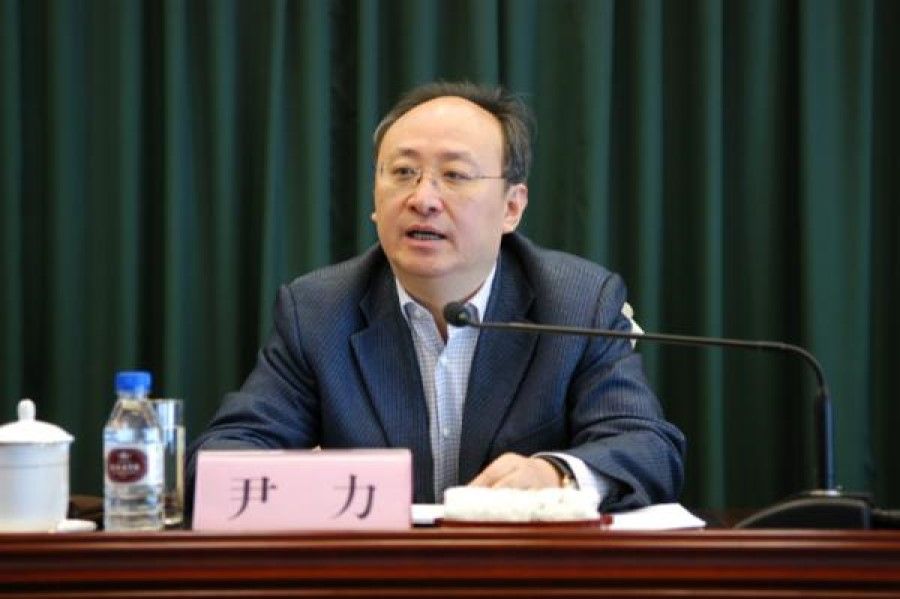
The party secretaries of Xinjiang, Zhejiang and Hunan - Ma Xingrui, Yuan Jiajun and Zhang Qingwei respectively - and Sichuan governor Huang Qiang are veterans of the aviation industry. Ma is even a member of the International Academy of Astronautics.
Chen Gang, assistant director and senior research fellow at the National University of Singapore East Asian Institute, pointed out that previously, local senior officials mostly came from the party system, but in recent years cadres with science and technology backgrounds have had accelerated promotions, and many are in key positions locally.
Chen believes that the higher proportion of officials with technology backgrounds has much to do with China's strategic technological development. He said, "As the China-US competition intensifies, China has to increasingly rely on its own technology research and development, and officials with the relevant background are given important positions, leading to a new trend of emphasising science over the arts."
"Years after Xi Jinping's single dominance, the camps are no longer demarcated between the Communist Youth League and the princelings, but based on who Xi trusts." - Kou Chien-wen, Head of the College of International Affairs at National Chengchi University
Xi the highest authority
When the 18th Party Congress opened ten years ago, two camps surfaced within the party - the "princelings" consisting of the children of senior cadres, and the Communist Youth League camp led by then CPC General Secretary Hu Jintao. But after current General Secretary Xi Jinping took over, the two camps gradually lost influence and were replaced by a new relationship network with Xi at its core.
Kou Chien-wen, head of the College of International Affairs at National Chengchi University, said that if the political power of the CPC before the 18th Party Congress was a cart led by multiple horses, now there is "one position as the highest authority" (定于一尊).
He said, "Years after Xi Jinping's single dominance, the camps are no longer demarcated between the Communist Youth League and the princelings, but based on who Xi trusts. For example, some people are closer to Shanghai party secretary Li Qiang, while others are closer to Chongqing party secretary Chen Min'er."
Kou observed that when the first-in-commands of each region speak at party congresses, they emphasise upholding Xi Jinping's core position on the Party Central Committee and in the party as a whole, as well as the authority and centralised, unified leadership of the Party Central Committee. This shows Xi's unshakeable dominance within the party.
Kou expressed, "But Xi's era will end sometime. And near the end, the power and relationships of the major players under him will show more clearly."
Local leadership can still change
While the next batch of party committees has been installed, changes are still possible over the next few months, especially among high-level senior officials. This would be a critical development in the lead up to the 20th Party Congress.
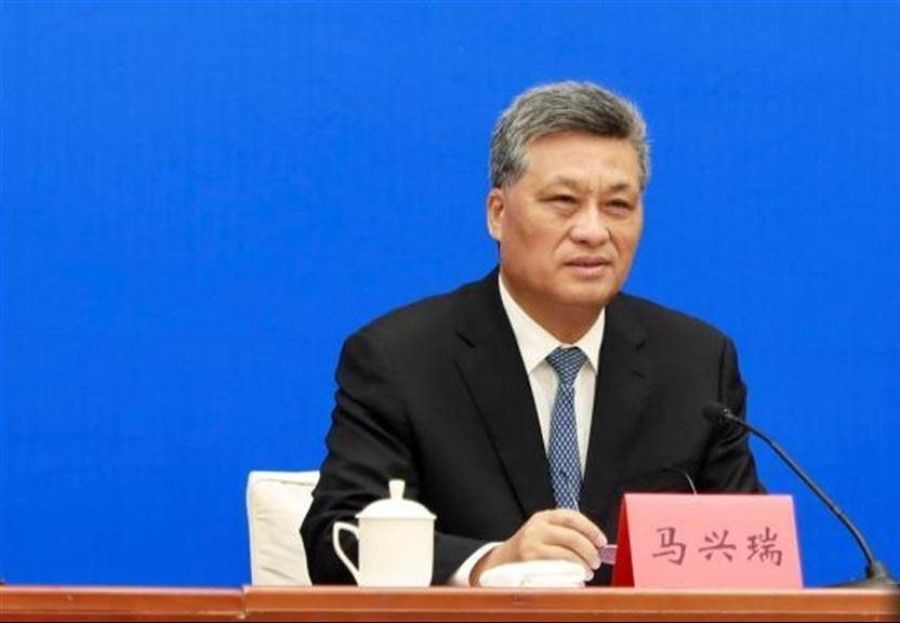
For example, the reshuffling of Xinjiang's party committee occurred in October 2021, but just two months later, returning party secretary Chen Quanguo was replaced by Guangdong governor Ma Xingrui. And after the party committee for Inner Mongolia was refreshed in November last year, party secretary Shi Taifeng was replaced in April this year by former Minister of Veterans Affairs Sun Shaocheng.
Chen Gang noted that the provinces and cities that did not replace their top leaders since the 19th Party Congress could still make changes before the 20th Party Congress. In particular, political high grounds Beijing, Shanghai, Tianjin, Chongqing, Guangdong and Xinjiang, where the first-in-commands are Politburo members, are worth watching because of the impact on the future makeup of the Politburo Standing Committee.
Among the first-in-commands from the six political high grounds, only Ma Xingrui - who took office as Xinjiang party secretary at the end of last year - is not yet in the Politburo. The other five are under 68 years old and are Politburo members. Going by the unwritten rule that one can still stay in office at 67 but has to step back to a secondary role at 68, all of them could remain Politburo members after the 20th Party Congress, or be moved to the central government before the session.
... Cai Qi in Beijing, Li Qiang in Shanghai and Chen Min'er in Chongqing are Xi's former subordinates, while Li Xi and Li Hongzhong, party secretaries of Guangdong and Tianjin respectively, have long professed loyalty to Xi.
What happens with a black swan event?
However, the journey of these first-in-commands can also end abruptly before the 20th Party Congress. In July 2017, before the 19th Party Congress, former Chongqing party secretary Sun Zhengcai was removed from his post. This sudden black swan event triggered a major earthquake in Chongqing's officialdom, including an emergency appointment of 14 representatives. Even at the latest Chongqing Municipal Congress, party secretary Chen Min'er listed "cleaning up the bad influence of Sun Zhengcai" as one of the main tasks for the next five years.
Kou Chien-wen said that although Sun Zhengcai was previously considered one of the two successors of the CPC, he was not in Xi's inner circle. Problems with Sun's behaviour gradually surfaced following his move to Chongqing and he became a "tiger" to be brought down.
In contrast, Cai Qi in Beijing, Li Qiang in Shanghai and Chen Min'er in Chongqing are Xi's former subordinates, while Li Xi and Li Hongzhong, party secretaries of Guangdong and Tianjin respectively, have long professed loyalty to Xi.
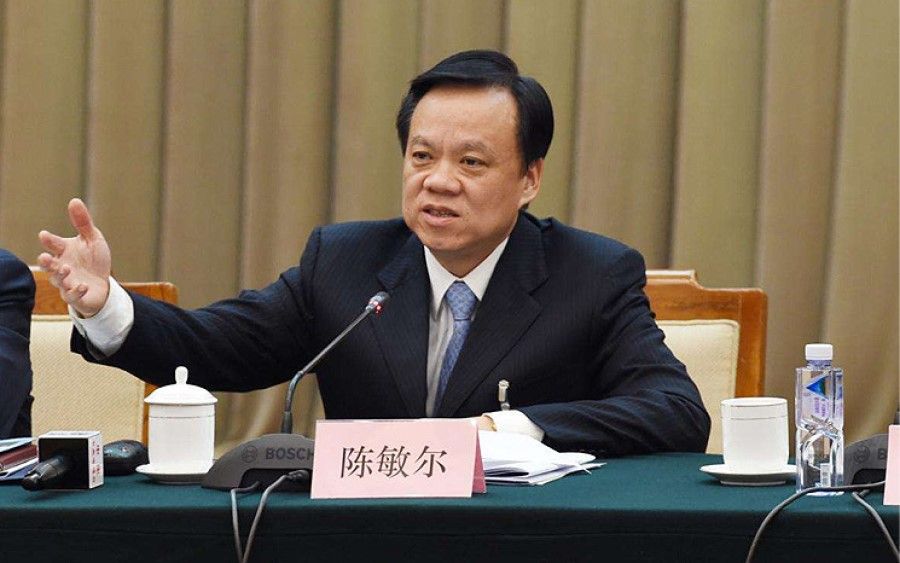
"They know how Xi works and would be more careful and prudent in their actions to avoid making the same mistakes as Sun Zhengcai," Kou said.
But he added that the hallmark of a black swan event is that it comes without warning, and unexpected major moves are still possible before the party congress. He noted, "Anything can happen."
Politburo shoo-ins
While the 20th Party Congress has not yet begun, the Central Committee has started to take shape after the reshuffle of provincial party committees, and the focus is now on the candidates of the highest policymaking group: the Politburo.
The 25 members of the Politburo usually hold key positions in state agencies such as the State Council, National People's Congress and the Chinese People's Political Consultative Conference, central agencies, or provinces and cities - the so-called party and national leaders.
Traditionally, the top leaders of the four municipalities of Beijing, Shanghai, Tianjin and Chongqing, as well as Guangdong and Xinjiang, become Politburo members, while senior local officials who have been the first-in-command of two or more provinces or cities have a higher chance of becoming Politburo members due to their experience.
Among the current local officials, 58-year-old Liaoning party secretary Zhang Guoqing is widely tipped to join the Politburo. He moved into local politics in 2013, after 25 years of working in a state-owned enterprise in the military industry. Following stints as mayor of Chongqing and Tianjin, he became Liaoning party secretary in August 2020. Zhang had two terms in the central committee, and fits the profile to join the Politburo in terms of age and experience.
Aviation officials favoured
Hunan party secretary Zhang Qingwei, called the "marshal of aviation", is another popular candidate. At 61, Zhang - along with Ma Xingrui and Yuan Jiajun - came from the China Aerospace Science and Technology Corporation, the "cradle" of aviation officials. Ma Xingrui, at 63, has secured a ticket to the Politburo after becoming the top official in Xinjiang, while Zhang Qingwei - former Hebei mayor and party secretary of Heilongjiang and Hunan, with four terms in the Central Committee - has enough under his belt to get him into the Politburo as well.
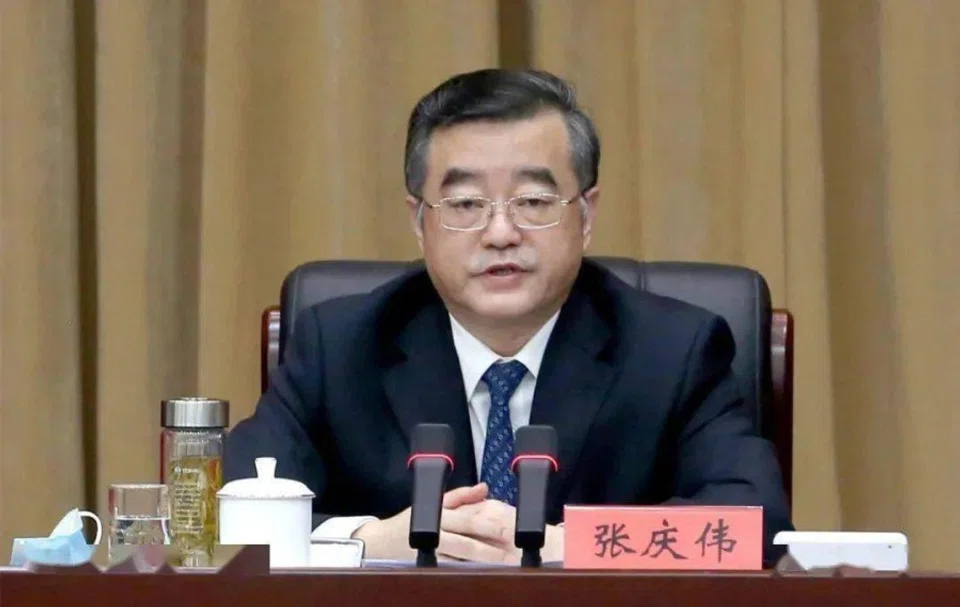
Observers are also taking notice of 60-year-old Fujian party secretary Yin Li, a medical PhD holder who previously worked in the health ministry. After nearly four years as Sichuan governor, he became Fujian party secretary in November 2020. With the pandemic expected to continue for some time, Yin's medical background could give him a competitive edge.
Kou Chien-wen noted that the pandemic might have affected support for Li Qiang within the party, but he remains in the running as he is the Shanghai party secretary and in Xi's inner circle.
Who will succeed Li Keqiang?
Among the five provincial first-in-commands expected to join the Politburo, Cai Qi, Li Hongzhong and Li Xi are all above 65, while 62-year-old Chen Min'er and 63-year-old Li Qiang are strong contenders for the next Politburo Standing Committee.
In response to a question from Lianhe Zaobao at the press conference after this year's Two Sessions, Premier Li Keqiang revealed that this is his last year as premier. Now, one of the biggest questions for the 20th Party Congress is who will succeed him as premier and be Xi Jinping's new partner, as Xi moves into his third term.
It had previously been rumoured that Li Qiang would take over the premiership from Li Keqiang, but the runaway pandemic situation and lockdown in Shanghai this year has had a serious impact on the economy and social order, and has added an element of uncertainty to Li Qiang's career.
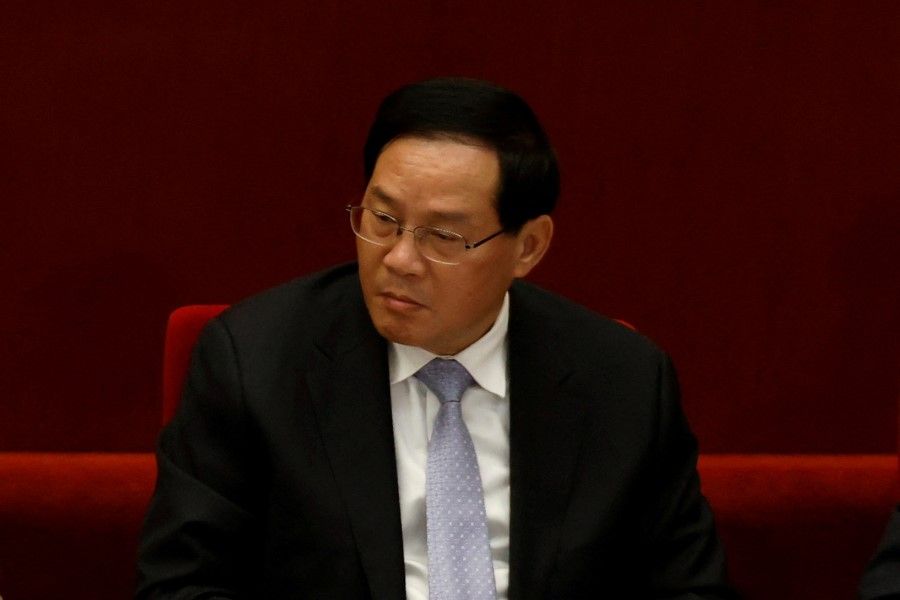
Kou Chien-wen noted that the pandemic might have affected support for Li Qiang within the party, but he remains in the running as he is the Shanghai party secretary and in Xi's inner circle.
Kou added, "However, since former Premier Li Peng, all premiers have first served as vice-premier. If Li Qiang goes from Shanghai party secretary directly to premier, that would break the norm; the same would apply to Chen Min'er."
Chen Gang also pointed out that the criteria for becoming premier is experience in the State Council. Looking at the current cohort, Li Qiang is most likely to take over from Han Zheng, former mayor of Shanghai, as vice-premier, overseeing economic affairs.
Some analysts believe that Hu Chunhua's background with the Communist Youth League - considered an influence of elite politics in China and a potential threat to Xi - might be an obstacle to his progression.
Of the four current vice-premiers, Chen Gang believes that Hu Chunhua is most likely to succeed Li Keqiang. Chen said Hu - born in 1963 - has the added advantage of being one of only three post-60s Politburo members. His experience in border regions such as Tibet and Inner Mongolia also holds weight within the CPC.
Some analysts believe that Hu Chunhua's background with the Communist Youth League - considered an influence of elite politics in China and a potential threat to Xi - might be an obstacle to his progression. Hu Chunhua was previously first secretary of the Communist Youth League, and his successor Lu Hao was also once seen as a rising political star.
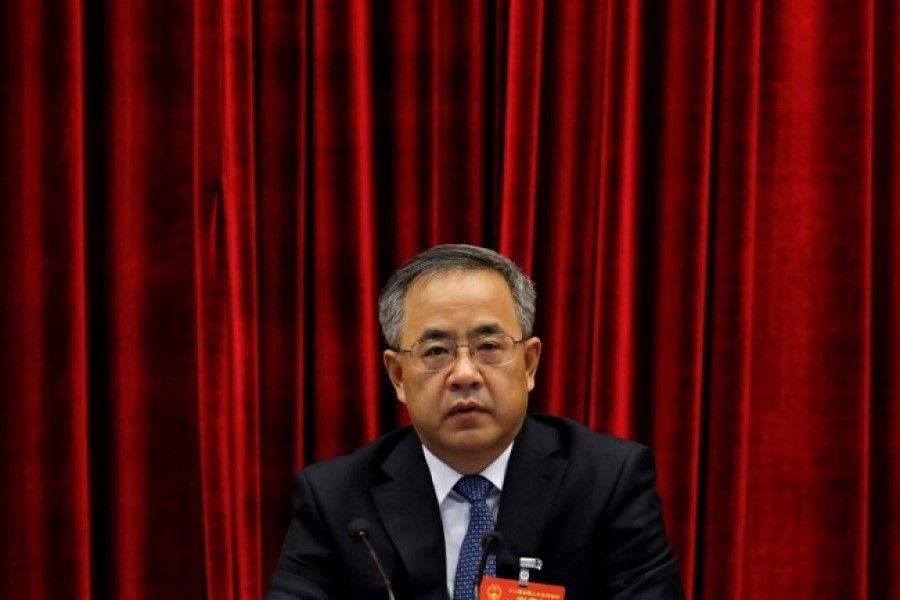
However, on 23 June, Lu Hao was unexpectedly removed from the Ministry of Natural Resources and appointed party branch secretary of the national think tank Development Research Center of the State Council. This is seen as a severe blow to his career, as it removes him from the top leadership. Hu Chunhua might also be affected due to his association with the Communist Youth League.
Handling the pandemic and economy in tandem
Kou Chien-wen said that while Hu Chunhua is not in Xi's inner circle, his age and experience, along with a generally positive reputation, makes him a good fit to take over as premier.
Kou said, "If Xi wants to pick a successor as premier from among the senior local officials in his inner circle, he will have to break away from standard practice and face greater resistance from within."
The pandemic situation in China has fluctuated this year, and economic pressure has been growing. Li Keqiang - in charge of economic affairs - has appeared frequently in news reports, prompting speculation about a redistribution of party authority. Some believe that Li Keqiang's party support has grown this year, giving him more sway in identifying his successor.
Kou Chien-wen believes that with the impact of China-US tensions, the war in Ukraine, China's unstable pandemic situation, and economic pressure, the first half of this year might have posed the greatest challenges for Xi since consolidating his power within the party, but this does not mean that his position has been shaken.
Looking at the speeches of Xi and Li Keqiang in People's Daily and other state media, Kou assessed that until recently, Xi still leads the narrative on major issues such as the economy, domestic politics and foreign affairs.
While Li Keqiang has been making more public appearances, whether the 100,000-person teleconference or the visits to investigate local employment situations, his sphere of authority has not expanded beyond economic affairs.
Kou noted, "Rather than reflecting a weakening Xi and a rising Li, it is Xi adjusting his priorities of policies, placing the economy on the same level as pandemic control, to give Li Keqiang more room to act. Even if Li or other senior party members have preferred candidates as successors, it is still Xi who gives the final nod."
Some observers also note that current Vice-Premier and Politburo Standing Committee member Han Zheng is also a candidate for the next premier. While Han is 68 this year, stepping down at this age is merely a standard practice and not a rule. Han was previously the Shanghai party secretary for the Communist Youth League, and had also worked directly under Xi. He would be a popular candidate and an easily accepted choice for premier.
Related: Tough competition: Becoming one of 2,300 delegates at the 20th Party Congress | Prelude to CPC's 20th Party Congress in 2022: Seven new provincial party secretaries appointed | Autumn succession: The main plot line of the 20th Party Congress | Who's who among the new CPC leadership: Enroute to CPC's 20th Party Congress | China to prioritise economic stability ahead of CCP 20th Party Congress | Taiwan scholars: Greater centralisation of power expected after the 20th Party Congress | Post-70s generation CPC stars jockey for position ahead of 20th Party Congress in 2022
